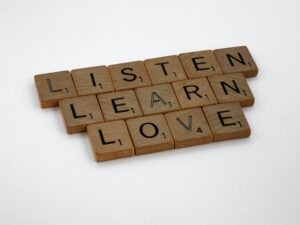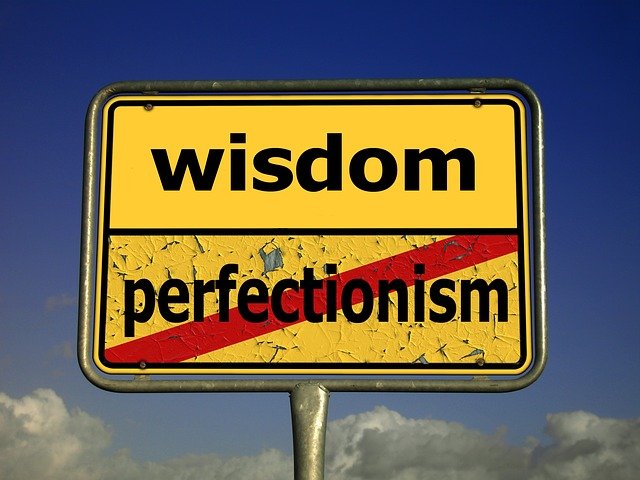Life is full of contradictions, isn’t it? One minute you’re being told that it’s best to keep your own counsel, and to “go with your gut”. Then, the next thing you know, you’re being told that “No man is an island” and that we are in community to help and guide one another.
How do we know when to listen to others, and when to listen to our “inner voice”?
Is it always a good idea to “follow your instincts”?

If you feel like a bit of a yo-yo trying to decide, you’re not alone. I can help… by pointing you to scripture. (You didn’t seriously think I had the answer, did you?)

From a scriptural standpoint, we are constantly encouraged to seek wisdom from others.
And when I say constantly, consider “constantly” an understatement. I found over 20 scriptures that promote the concept of soliciting wise advice from others- specifically God, parents, and people (of faith) who have your best interests at heart and that you trust.
Scripture is clearly in favor of the benefit of collective wisdom, which can only be gained by listening to the wise counsel of others.
The way of a fool is right in his own eyes, but a wise man listens to advice.
Proverbs 12:15 (ESV) Tweet
Quite often, we can be reluctant to seek advice from others, especially as we get older. Our ego and our pride convince us that we should know the answer, and if we don’t know it, we should be able to figure it out on our own.
None of us relishes the idea of looking like a fool. We see this fear play out almost every day of our lives…
This reluctance was brought into sharp focus during a small group training I once attended with five other people. The instructor was moving fast, talking non-stop and flipping back and forth between screens and formulas; My head was SPINNING. When I looked at the other people in the training, all of them were nodding their heads in understanding and looking serious.

Now, I like to think that I’m a fairly intelligent person, and I *hate* looking (or feeling) like the dumbest person in the room, but after about ten minutes, I could no longer sit in silence, wondering if I was the only one who had no idea what he was talking about.
Finally, when he paused to take a breath, I interrupted, hurriedly asking, “Am I seriously the only one who has NO IDEA what he’s talking about?” I paused, adding, “Will anyone else who is completely confused please raise their hand?” and immediately raising my hand. I reluctantly looked around, certain that I was the only person completely bewildered, only to discover that four out of the five other people had their hands in the air.
“Why didn’t anyone else say anything?” I asked, receiving only sheepish looks in response.

Why are we so resistant to admitting that we don’t know it all?
I think our reluctance began back in elementary school.
From a young age, we were encouraged to raise our hand when we knew the answer, and were quickly conditioned (by peers who jeered or teachers who were impatient) that raising your hand with a question meant you were… not smart and/or not quick-thinking.
In reality, however, it is those who are willing to admit their ignorance and ask questions who often demonstrate the depth and complexity of their thinking.
Consider this: How many of you remember “seminar” style classes in high school? Those classes did not focus on the traditional teaching methodology, where the teacher provided the facts and students were expected to learn and remember them. Seminar classes generally revolved around concepts being introduced, and then explored by discussions that were rife with questions (by students and teachers). The questions forced everyone (including the teacher) to peel back layer after layer, like an onion, to discover the “why”.
We don’t have to know all the answers. In fact, believing that you have all the answers is the surest path to disaster. God loves us all the more when we are willing to come to him, seeking guidance and answers- he provides countless examples of this in scripture.
James 3:17 (ESV) says,
“But the wisdom from above is first pure, then peaceable, gentle, open to reason, full of mercy and good fruits, impartial and sincere.”
He encourages us to seek the wisdom of others, too, gently chastising when he says,
“How long, O simple ones, will you love being simple? How long will scoffers delight in their scoffing and fools hate knowledge?” (Proverbs 1:22 ESV) and “Listen to advice and accept instruction, that you may gain wisdom in the future.” (Proverbs 19:20 ESV)
And while we are spurred to seek the wise counsel of others, we are reminded to be sure that the advice we receive aligns with God’s word.
Again I say, We are not expected to know all the answers.
Proverbs is full of scripture on being a fool, and much of it centers on the folly of total self-reliance of thought.

- Whoever walks with the wise becomes wise, but the companion of fools will suffer harm. (Proverbs 13:20 ESV)
- The fear of the Lord is the beginning of knowledge; fools despise wisdom and instruction. (Proverbs 1:7 ESV )
- Whoever trusts in his own mind is a fool, but he who walks in wisdom will be delivered. (Proverbs 28:26 ESV)

We must surrender our pride and ego for humility instead.
Admitting that we don’t have all the answers and that we need the help, guidance and insight of others is the true path to wisdom.
Kristine Bolt said it best in a post on her blog, “Unlock Your Life”:
“My darling, you don’t have to be a superhero, singlehandedly solving every problem in your life. That’s why God gave you a community of believers on which to lean. For all times, really, but especially when you’re confused or unsure about what to do. So go ask for help.”

“Listen to advice and accept discipline,
and at the end you will be counted among the wise.” (Proverbs 19:20)
















